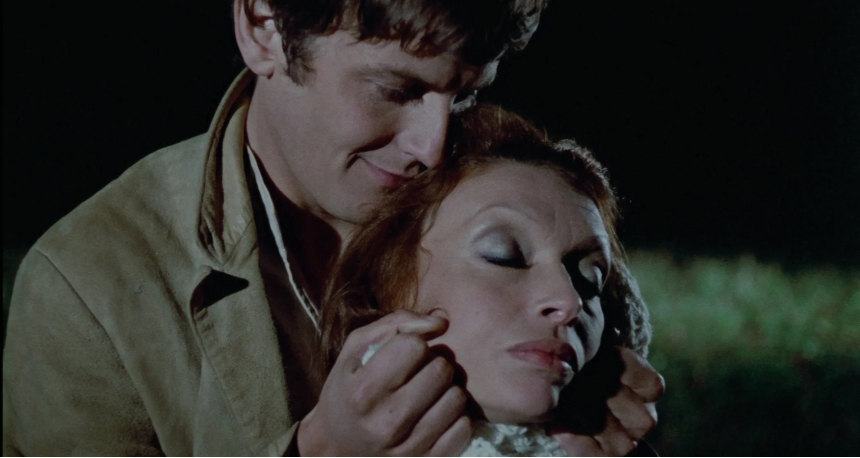THE STRANGLER (L'étrangleur) Review: Resurrected French Giallo with a Beating Heart

First presented at the Cannes Film Festival in 1970, Paul Vecchiali’s melancholic thriller The Strangler did not have a U.S. release until its screenings at Fantastic Fest and the New York Film Festival earlier this year. Its 2K restoration is currently making its way through selected cinemas across the States and finally getting the attention it deserves.
The lonely women of Paris are being terrorized by a pleasant young man, Emile, with a face of a hero from a Jacques Demy musical. He is played by Jacques Perrin, who at the time had recently starred in The Young Girls of Rochefort. Emile is quiet and mild mannered, a dog lover to boot, and he chooses his prey based on the assumption that these women are desperate and on the verge of killing themselves.
The group of people searching for him weirdly includes a police investigator with unorthodox methods (Julien Guiomar), a young woman (Eva Simonet) who believes she fits the profile and basically harasses the detective into using her as bait, and a sleazy petty thief (Paul Barge) who steals the goods off the women killed by Emile – which enrages the latter. These four, who all seem to be after each other at different times, form an unusual relationship dynamic that leads to an unexpected conclusion.
For all its unique setting and set of characters, The Strangler doesn’t rely much on its plot, instead opting out for style and atmosphere. The film is being hailed as an example of French giallo and well within reason.
At the time, Mario Bava had the ball rolling already with The Evil Eye (1963) and Blood and Black Lace (1964), and the very same 1970 saw the release of Bava’s Five Dolls for an August Moon and Dario Argento’s The Bird with the Crystal Plumage that further popularized the giallo canon. Serial killer at the center of the narrative, a curious and meddling heroine, traumas of the past and psychosexual overtones – all of this obviously unites Paul Vecchiali’s film with said canon, but with certain digressions.
There is notably less gore, as the authors treat the murder scenes with the same gentleness their protagonist extends to his victims. The mystery aspect is also glaringly absent; we know who the killer is, as do most of the characters by the film’s midpoint. and are shown right away what drives him.
Interestingly, more questions surround Simonet’s heroine’s motivations that aren’t truly revealed until the end, becoming one of the reasons the movie, made in a different era, feels pretty relevant today. The same goes for the scene where a group of sex workers quickly and effectively capture one of the criminals who, they believe, attacked their friend.
Vecchiali – who despite his prolific directorial career is also considered an influential producer of European arthouse cinema (such as Chantal Akerman’s Jeanne Dielman, 23, quai du commerce, 1080 Bruxelles) – is an artist of a great visual style. As the acts of killing mostly happen off screen, everything in between is conducted with immense creativity, from a musical number in a floating club to a prolonged sequence of Emile’s mind jumping back and forth between various scenes of violence.
Still, emotion prevails over style. The thing that makes the movie really stand out amongst other similar tales is its tone that mixes macabre, lyricism and a great deal of humor, and at times reminds less about gialli and more of Jerzy Skolimowski’s gem Deep End (also made in 1970).
Vecchiali’s film is rich with curious thematic underlinings that seem to fit the time, both then and now. The Strangler is incorporated with the overall cinematic tradition of the 70s that greatly concerned itself with protagonists considered outsiders, the lonely people and where they all come from, the topics of isolation and good intentions turned into obsessions – all of which still hasn’t faded into the shadows today.
The film is now playing in select U.S. theaters and will soon be expanding further. Visit the official site for more information.







